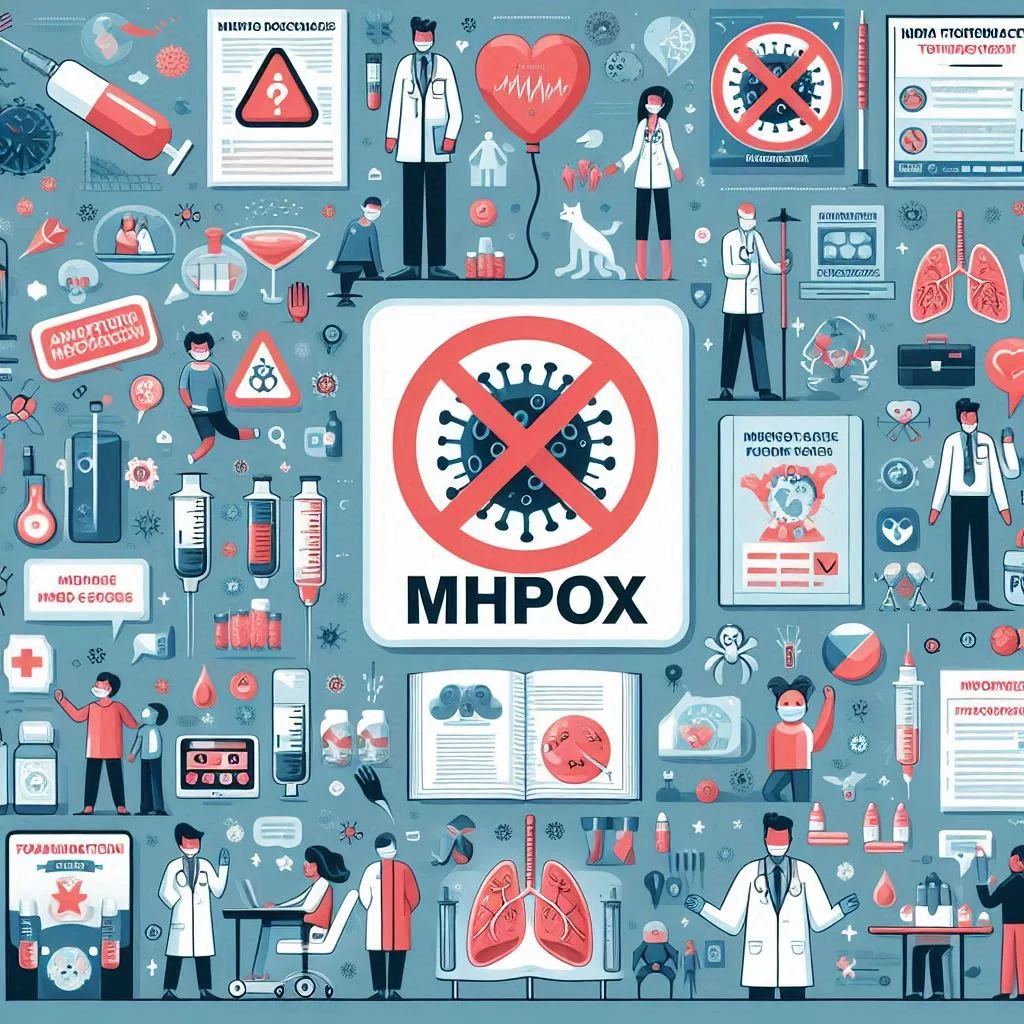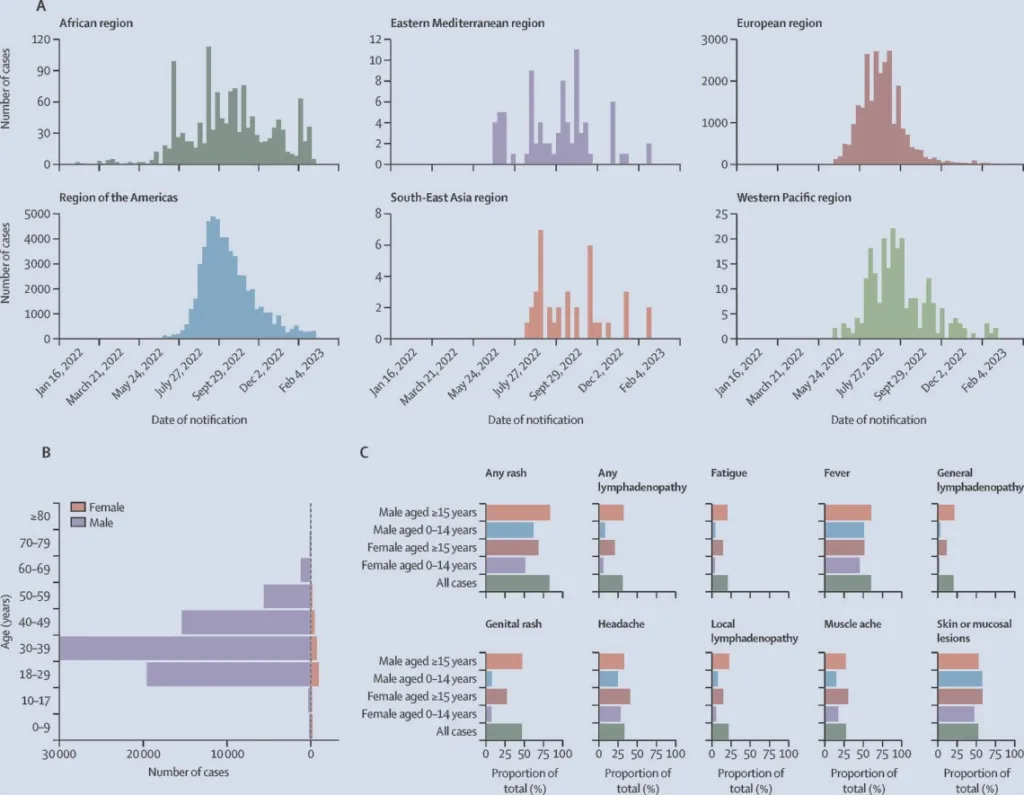The World Health Organization has issued a very pivotal and highly sensational declaration of Mpox health emergency, otherwise known as monkeypox, as a global health emergency of international concern. This call was made after an alarming increase in cases, specifically in the Democratic Republic of the Congo, where a more lethal variation of the virus is spreading.
By mid-2024, there had already been over 15,600 cases and above 500 reported deaths in the DRC; children have been the most affected. This gloomy milestone goes over the sum of the cases noted last year, hence raising a red alert on its high potential to spill beyond the African borders.
MPOX is different from COVID-19; it’s slower-moving and has vaccines and treatments already in place, though the rollout has been very lopsided so far – African nations have received very slight supplies of either. It is now a mad dash by WHO and Africa CDC in getting more vaccines that will be shared equitably and associated with other aspects concerning a global response, to contain its further spread.

Breaking News: WHO Declares Mpox a Global Health Emergency
The declaration could not have come at a better time than when an exponential rise in the cases, majorly recorded in the Democratic Republic of Congo, where the deadlier version has borne untold devastations costing numerous lives, many of whom are children. Indeed, against the backdrop of a world increasingly susceptible to viral and bacterial attacks, that was such a pointer: instant international action yearned for in a fast-changing situation where Mpox is declared a global health emergency by the World Health Organization. This is currently at alarming levels in this crisis, where over 15,600 cases and above 500 deaths have been recorded within the first quarter of 2024, hence calling for instant global response.
The WHO declaration by the World Health Organization on a health emergency due to Mpox infection in 2024 proves how grave the Mpox outbreak 2024 is as a vital international crisis. This declaration was made out of regard for the rapid Mpox Africa spread, most especially in nations like the Democratic Republic of the Congo, where Mpox health emergency cases have increased too drastically. Such an act calls for pressing international cooperation and resources for the need to stop further spread of the virus and protection of vulnerable populations in Africa and beyond.
Call to Action: WHO Makes Global Emergency Declaration on Mpox Outbreak 2024
WHO Declares Global Mpox Health Emergency: Outbreak of Mpox Africa Spreads and Deteriorates to New Regions

- The Spike and Rise in Mortality Case: Over 15,600 cases and 500 deaths—the spurt in Mpox cases in the Democratic Republic of the Congo in 2024 is remarkable indeed. This is surely a cause of concern, especially now that a new deadlier strain seems to be more potent in killing children.
- Mpox has spilled over to neighboring countries, such as Rwanda, Burundi, Kenya, and Uganda. This confirms that the regions that are not hit by the virus are affected; hence, an account of a wider-reaching epidemic and hence international alarm over the efforts of containing and controlling the epidemic.
- WHO Declaration of a Global Health Emergency: Now things have turned grimmer as the WHO declares Mpox a global health emergency. This declaration is supposed to marshal international resources and interest in the fight against the outbreak, especially in Africa, whose health systems are overstretched.
- Challenges in Vaccine Distribution: While vaccines and treatments were available, the distribution became very lopsided, with only a small fraction of what was required reaching Africa. This inequity in the allocation of resources might throttle the containing initiative with respect to the virus and its further spread.
- Comparisons with COVID-19: While Mpox spreads at a much slower rate than COVID-19, the upward trajectory of the current Mpox outbreak 2024 mirrors circumstances under which international spread may be a concern, particularly in situations where it is not under adequate control. But it talks to early warning and response and global health security with fair resource distribution.
The World Health Organization declared a global health emergency recently owing to a surge in Mpox cases, most from the Democratic Republic of Congo and other African countries. This happened with the virus, known before as monkeypox, now spreading to areas that have never reported cases before, like Rwanda, Burundi, Kenya, and Uganda.
A Deadly Strain on the Rise
The current African strain is more virulent than the one that caused a global outbreak in 2022. Unlike COVID-19, which spread around the globe quickly, Mpox is characterized by slower transmission. Even so, the lack of proper health care and limited availability of vaccines in Africa has deepened this crisis, making it hard to control the outbreak of the virus.
The Mpox health emergency has increased manifold during the Mpox outbreak 2024, and urgent responses have been initiated at large by global health authorities. Much concern is being expressed in the public health sectors while it is getting transmitted day by day; this is putting a heavy load on healthcare systems around the globe. In this backdrop, containment efforts are picking up in the setting of surveillance, vaccination programs, and public awareness of this health crisis.
Global Health Crisis Challenge
The new cases found in neighboring countries, including Rwanda, Burundi, Kenya, and Uganda—areas that have never reported Mpox before—have tickled many nerves with fear that the virus might spread to other countries. This almost defines the situation that was experienced in the past pandemics that started with small outbreaks, only to spread across borders and affect millions of people around the globe.
WHO’s declaration is a clarion call to action, imploring the world to take Mpox seriously in Africa. While effective vaccines have been at hand, only a fraction of what is needed has been given to the continent, leaving millions open to infection.

What’s ahead: Urgent call for action
The WHO and the Africa CDC are leading in procuring more vaccines and enhancing surveillance systems to forestall further spread, but the international community shall hasten efforts to support the continent where the situation is most critical.
This global health emergency puts one thing very straight: that in today’s interconnected world, a public health crisis anywhere is a threat everywhere. The lessons learned from the pandemic underline the fact that early intervention, sharing of resources equitably, and global cooperation require moving across silos to ensure preparedness and prevent another such catastrophe.
Now the world watches—eyes wide open—with bated breath. The answer will be whether we act in time to contain this emerging threat.
Raising awareness and supporting global health response, each of us can help in finishing this Mpox outbreak and preventing future pandemics. Be informed and engaged as the situation evolves. The situation at hand is closely monitored, but there is a fear that unless controlled, the virus may spread internationally just like in previous outbreaks of infectious diseases which have traveled across borders (Health News Florida) (MedXpress) (MedXpress).



